Explore Houston University of Texas’s Eligibility Criteria for Students Worldwide
High School Diploma, GED or equiv. International Education
144 Hours
4 Year (Self-Paced) Program
24
The course explores philosophic and artistic heritage of humanity expressed through a historical perspective on visual arts, music, and literature. Topics include myth, literature, art, music, television, cinema, and the theater. Also discussed are provocative issues in the humanities - religion, morality, happiness, death, freedom, and controversies in the arts.
Social and Cultural Geography considers why geography matters to the analysis and understanding social relations, cultural identity and social inequality. Course examines how social life is structured at a variety of scales with respect to ethnicity, industries, services, urban patterns, and resources of world as a whole.
English Composition provides you with rhetorical foundations that prepare them for academic and professional writing. You will learn the strategies and processes that successful writers employ as you work to accomplish specific purposes. You will develop skills in writing unified, coherent, well-developed essays using correct grammar and effective sentence structure.
College Algebra provides an overview of the fundamental concepts of algebra: an understanding of the general concepts of relation and function; and the ability to solve practical problems using algebra.
World Religions course offers the broadest coverage of world religions as they exist today; helping you understand the ideology behind the many religions that strive today. While it is impossible to cover all religions, it does cover those of the vast majority of people.
Evenly balanced between theory and applications, this course shows you how to establish an ethical theory and how to apply it to a range of specific moral issues. This course examines ethical problems in such areas as mercy killing, personal relations, business, sexuality, medicine, and the environment.
This course introduces the origins and historical development of art. Emphasis is placed on the relationship of design principles to various art forms including but not limited to sculpture, painting, and architecture. Upon completion, you should be able to identify and analyze a variety of artistic styles, periods, and media.
This course provides the mathematical foundation for an introductory calculus course. In addition to a brief review of basic algebra, the course covers equations and inequalities; functions, models, and graphs; polynomial and rational functions; exponential and logarithmic functions; trigonometric functions; and trigonometric identities and equations.
This course is an introductory study of the human body, including the basic structure and function of the major organ systems (nervous, endocrine, circulatory, reproductive, etc.) and the effects of diet, exercise, stress and environmental change on human health.
World History course present the big picture, to facilitate comparison and assessment of change, and to highlight major developments in world's history. This course emphasizes the global interactions of major civilizations so that you can compare and assess changes in the patterns of interaction and the impact of global forces.
This engaging course provides you a conceptual overview of basic, essential topics in physics, chemistry, earth science, Equilibrium and Linear Motion, Newton's Laws of Motion and astronomy with optional quantitative analyses.
This course builds upon the clear and concise explanations of Human Anatomy. It helps you to understand how anatomical structure relates to function of the Body.
With the amount of information in biology growing constantly, it is a challenge for you to develop a sense of scientific literacy and to become educated consumers. This course helps you manage a wealth of scientific information in a manner that is both meaningful and long-lasting.
This course focuses on the basic principles of biochemistry. It reflects upon the recent changes in this dynamic discipline of biochemistry and reflects how this field has helped the biochemists to improve the environment.
This course explains the basic principles of ecology. The course contains current ecological topics; and the current subfields of ecology; and new in-text features to encourage you to interpret the ecological data, research, and models used throughout the course.
This course gives you the background (and confidence) you need in chemistry. The course focuses on the most important topics, and teaches the problem-solving skills that you need.
This course progresses from the important overview relationships of organ system physiology down to the tissue, cellular, and subcellular level. This course will teach you on how you can trace arteries, veins, and nerves through their courses and bifurcations.
This course reflects on the changing environmental scene worldwide, with a wide range of viewpoints and information from the latest sources. This course places new emphasis on issues such as emerging diseases like avian flu; the 4th World Water Forum; and the “gene revolution”.
Chemistry is the science of composition, structure, properties, and reactions of matter, especially of atomic and molecular systems. This course discusses the fundamentals of chemistry along with basic underlying principles of chemistry; these topics include Atoms, Molecules, Ions, Chemical Reactions, Atomic Structure, Chemical Bonds, and Nuclear Chemistry.
Organic chemistry is the chemistry of carbon compounds other than simple salts such as carbonates, oxides, and carbides. This course encompasses topics such as Introduction to Organic Compounds, Reactions of Alcohols, Amines, Ethers, And Epoxides, and Carbonyl Compounds.
In this course, You will explore chemistry with an approach that shows the ways in which chemistry impacts Your life every day. The topics that will be examined will demonstrate the ways in which chemists look at the world, learn from them, and then come up with solutions to problems.
Biochemistry deals with the chemistry of biological transformations in the cell. This course deals with a general treatment of various areas of modern biochemistry including molecular basis of genetic and developmental processes, cellular mechanisms and intermediary metabolism.
Ecology is the scientific study of interactions between organisms and their environment in a hierarchy of levels of organization: individuals, populations, communities, and ecosystems. This course provides a comprehensive survey of The Organism in Its Environment, Population Interactions, Ecological Genetics and the Ecosystem.
This course covers topics that would help you to understand how chemists utilize various concepts in chemistry to influence the environment around us. The topics include Air Resources, Material Resources, Energy Resources of Carbon and Synthetic and Biological Polymers.
| Tuition Fee Breakdown | Cost |
|---|---|
| BACHELORS DEGREE | $31,680 |
| Medical Insurance | $0.00 |
| Personal Expenses | $0.00 |
| Study Materials | $0.00 |
| Food Cost | $0.00 |
| Total Tuition Fee | $31,680 |
At Houston University of Texas, we champion the convergence of affordability and opportunity. Our steadfast commitment to accessible education guarantees that high-quality learning is accessible to all. By eliminating financial obstacles, we grant students the freedom to thrive without the burden of overwhelming tuition costs, empowering them to carve out a bright and promising future.

| Topics Covered in This Course: | |||||||||||||||||||||||||||||||||
|
| Topics Covered in This Course: | |||||||||||||||||||
|
| Topics Covered in This Course: | |||||||||||||||||||||||||||||||||||
|
| Topics Covered in This Course: | |||||||||||||||||||||||||||||||||
|
| Topics Covered in This Course: | |||||||||||||||||||||||||||||||
|
| Topics Covered in This Course: | |||||||||||||||||||||||||||||||||||||
|
| Topics Covered in This Course: | |||||||||||||||||||||||||||||||||||||
|
| Topics Covered in This Course: | |||||||||||||||||||||||||
|
| Topics Covered in This Course: | |||||||||||||||||||||||||||||||||
|
| Topics Covered in This Course: | |||||||||||||||||||||||||||||||||||||||||||||||||||||||||||||||||||
|
| Topics Covered in This Course: | |||||||||||||||||||||||||||||||||||||||||||||
|
| Topics Covered in This Course: | |||||||||||||||||||||||||||||||||||||||||||||||||||||||
|
| Topics Covered in This Course: | |||||||||||||||||||||||||||||||||||||||||||||||||||||||||||||||||
|
| Topics Covered in This Course: | |||||||||||||||||||||||||||||||||||||||||||||||||||
|
| Topics Covered in This Course: | |||||||||||||||||||||||||||||||||||||||||||||||||||||||||||||||
|
| Topics Covered in This Course: | |||||||||||||||||||||||||||||||||||||||
|
| Topics Covered in This Course: | |||||||||||||||||||||||||||||||||||||||
|
| Topics Covered in This Course: | |||||||||||||||||||||||||||||||||||||||||||||||||
|
| Topics Covered in This Course: | |||||||||||||||||||||||||||||||||||||||||||||||||||||||
|
| Topics Covered in This Course: | |||||||||||||||||||||||||||||||||||||||||||
|
| Topics Covered in This Course: | |||||||||||||||||||||||||||||||||||||||||||||
|
| Topics Covered in This Course: | |||||||||||||||||||||||||||||||||||||||||||||||||||||
|
| Topics Covered in This Course: | |||||||||||||||||||||||||||||||||||||||||||||||||||||||||||
|
| Topics Covered in This Course: | |||||||||||||||||||||||||||||||||||||||||||
|

We specialize in providing online education solutions for students worldwide who are balancing studies and professional commitments. Our mission is to make quality education accessible to everyone, regardless of location or schedule constraints
Discover More
Get Substantial Career Growth With Our Accredited Degree Programs.